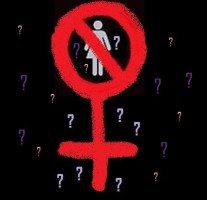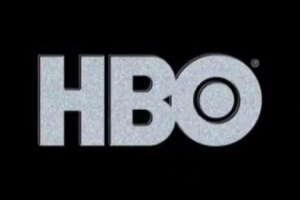James Petty
 A woman walks in to gay men’s bar… and what happens? A number of things might—maybe nothing happens. Or, depending on the particular city, night or bar, she may be refused entry, or warned that she is entering a venue designed for gay men, she may be charged a higher entry fee than a man would, she may be made to feel unwelcome by getting charged more for drinks or by not being served by the bar staff at all.
A woman walks in to gay men’s bar… and what happens? A number of things might—maybe nothing happens. Or, depending on the particular city, night or bar, she may be refused entry, or warned that she is entering a venue designed for gay men, she may be charged a higher entry fee than a man would, she may be made to feel unwelcome by getting charged more for drinks or by not being served by the bar staff at all.
I was in Portland, Oregon last week and was doing a bit of research for where to go out at night—it was my last week in the US and wanted to check out the gay scene. I hadn’t had to be so thorough in New York City and San Fransisco but Portland was different, a smaller city whose urban spaces are less centralised, less grouped into cultural clusters—there is no East Village or Castro in Portland.
On the website Yelp! I was reading reviews and there seemed to be a couple of common threads present in the reviews of the larger gay venues*. Male reviewers tended to like the bar/club but some complained about the presence of women. Women tended to like them also, or they would have if they hadn’t been treated so poorly by the staff and clientele.
 It’s an issue that pops up from time to time: the right of straight women to attend bars specifically targeted at gay men—this is a particularly relevant issue in Melbourne where the owner of The Peel won the right to ban women and heterosexuals on the basis of their gender/sexuality.
It’s an issue that pops up from time to time: the right of straight women to attend bars specifically targeted at gay men—this is a particularly relevant issue in Melbourne where the owner of The Peel won the right to ban women and heterosexuals on the basis of their gender/sexuality.
Opinions are varied, and not necessarily split down the gender divide: women have traditionally been the main ally/BFF of the gay man and are thus likely to be in spaces where gay men congregate. On the other hand the defining characteristic of male homosexuality, at least at a basic level, is a sexual dynamic that excludes women, thus the presence of women at gay bars is seen by some gay men as inappropriate or contra that dynamic.
The other, more controversial, and honestly more galling, manifestation of women at gay bars is typified by the ‘hens night’ stereotype—groups of drunk and obnoxious straight women attending gay bars where they don’t necessarily know any gay men for a trashy night of drinking and dancing. For some gay men—and I don’t fully exclude myself from this—this can create the feeling of being viewed as a circus freak; that the male homosexual culture can be treated like and consumed as a tourist attraction. This tendency was exemplified in San Fransisco recently when the city banned sightseeing tour companies from stopping on Castro St to disgorge busloads of Chinese tourists** to snap photos of gay men walking their dogs, having coffee and going about their everyday lives.
 Reading these reviews and an article in Bitch magazine got me thinking about the function of gay venues and the politics of safe spaces. Gay bars have obviously functioned as a way of creating safe spaces for gay men, especially in a historical context but still very much so today. I guess the question is, does the attendance of straight women at gay bars undermine this? I think in some cases, yes. But, the other question raised, and that is perhaps often ignored, is are gay bars and clubs safe spaces for women too? Many of the more irate male reviewers on Yelp! posed the question, ‘You’ve got your own bars to go to, why don’t you go there?’ This seems logical at first, but, since straight women attending gay bars is hardly an uncommon phenomenon, it begs the question are ‘straight’ bars and clubs actually safe for women? The obvious answer is: probably not.
Reading these reviews and an article in Bitch magazine got me thinking about the function of gay venues and the politics of safe spaces. Gay bars have obviously functioned as a way of creating safe spaces for gay men, especially in a historical context but still very much so today. I guess the question is, does the attendance of straight women at gay bars undermine this? I think in some cases, yes. But, the other question raised, and that is perhaps often ignored, is are gay bars and clubs safe spaces for women too? Many of the more irate male reviewers on Yelp! posed the question, ‘You’ve got your own bars to go to, why don’t you go there?’ This seems logical at first, but, since straight women attending gay bars is hardly an uncommon phenomenon, it begs the question are ‘straight’ bars and clubs actually safe for women? The obvious answer is: probably not.
The article in Bitch talked about the hazards many women face at ‘straight’ clubs: insidious inspections by doormen who may refuse them entry if they are not deemed ‘hot enough’, unsolicited and insistent come-ons, unwanted ogling, grinding and groping, the risk of being sexually assaulted, the risk of having your drink spiked, the need to perform an idealized display of femininity, the inability to dance without it ‘meaning something’ (i.e. consent), the list went on. In light of this, it seems that gay bars may function as an ersatz refuge for straight women against the misogynist, slut-shaming and victim-blaming hetero world.
The historical alliance be tween women and queers has not always been harmonious—in reference to each other as well as internally within both groups— but each has fought, often allied, for the right for safe spaces. But what happens when the presence of women makes gay bars unsafe, or when gay bars enact policies designed to exclude women?
tween women and queers has not always been harmonious—in reference to each other as well as internally within both groups— but each has fought, often allied, for the right for safe spaces. But what happens when the presence of women makes gay bars unsafe, or when gay bars enact policies designed to exclude women?
It seems that one of the reasons straight women attend gay bars is because they are excluded from the dominant sexual dynamic. Gay men attend gay bars in order to create a space in which their sexual dynamic is dominant, but does the presence of straight women undermine this? Evidence suggests that it does, and if so, this creates a divisive politic between two minorities.
 So the question is, do gay venues have the right to put the safety of their gay male patrons above that of their heterosexual women patrons and therefore further engender this division? Ideally, no, but surely the very concept of a ‘safe space’ necessitates exclusion. Thus, while I do not support the exclusion of straight women from gay venues, nor do I support the diminishment of the importance or sanctity of those spaces for gay men due to the presence of members from another group. While this position obviously fails to offer an adequate answer, it does perhaps highlight that the safe spaces politic is itself insufficient for addressing such issues.
So the question is, do gay venues have the right to put the safety of their gay male patrons above that of their heterosexual women patrons and therefore further engender this division? Ideally, no, but surely the very concept of a ‘safe space’ necessitates exclusion. Thus, while I do not support the exclusion of straight women from gay venues, nor do I support the diminishment of the importance or sanctity of those spaces for gay men due to the presence of members from another group. While this position obviously fails to offer an adequate answer, it does perhaps highlight that the safe spaces politic is itself insufficient for addressing such issues.
*In Portland the smaller bars and bars located outside the city centre tended to be ‘mixed’ which precludes this dynamic of tribalism.
**I specify that the tourists were Chinese for cultural context only, as tourists from Western cultural contexts would be unlikely to find such a sight so compelling.
 Gay cinema and my father are not two things that would usually mix, especially not in a way that involves my father and I attending a gay film together. Not that my dad would be vehemently opposed to the idea, it’s just unlikely to happen. However, there is, as they say, a first time for everything: Dad and I went and saw Star Trek: Into Darkness. Continue reading
Gay cinema and my father are not two things that would usually mix, especially not in a way that involves my father and I attending a gay film together. Not that my dad would be vehemently opposed to the idea, it’s just unlikely to happen. However, there is, as they say, a first time for everything: Dad and I went and saw Star Trek: Into Darkness. Continue reading 























